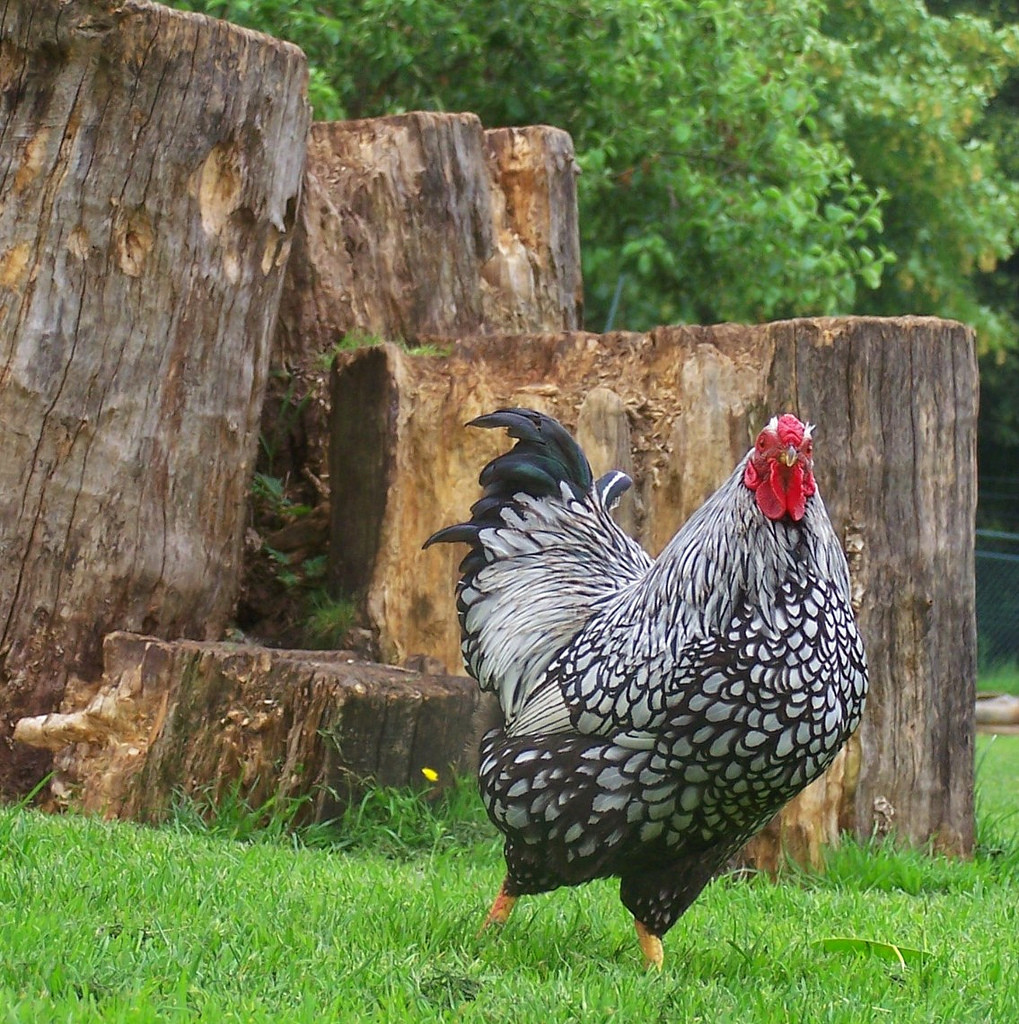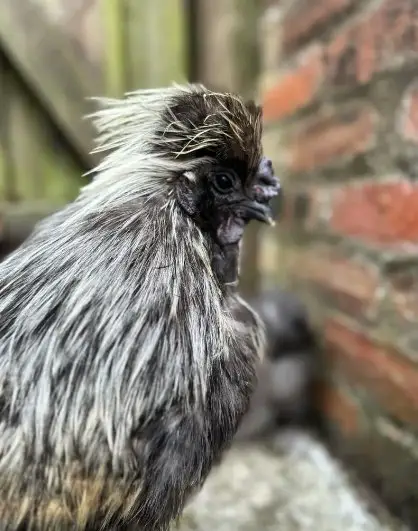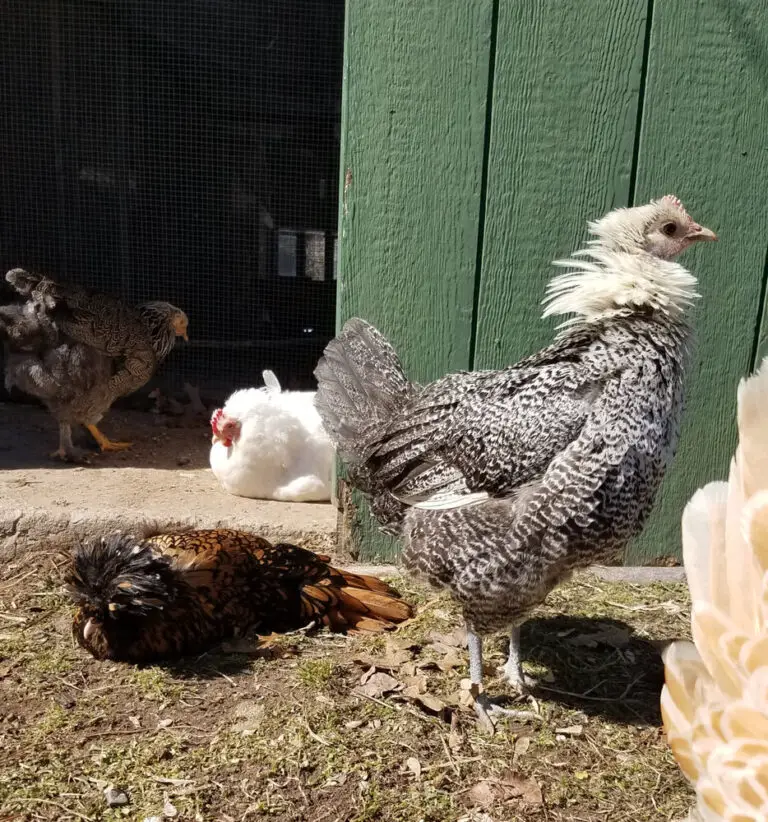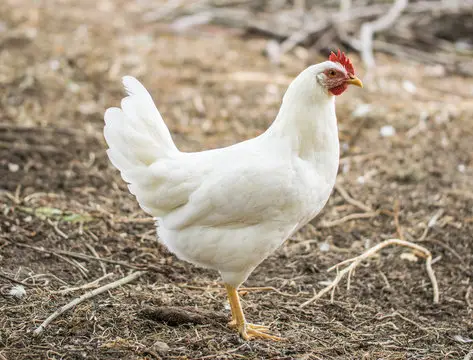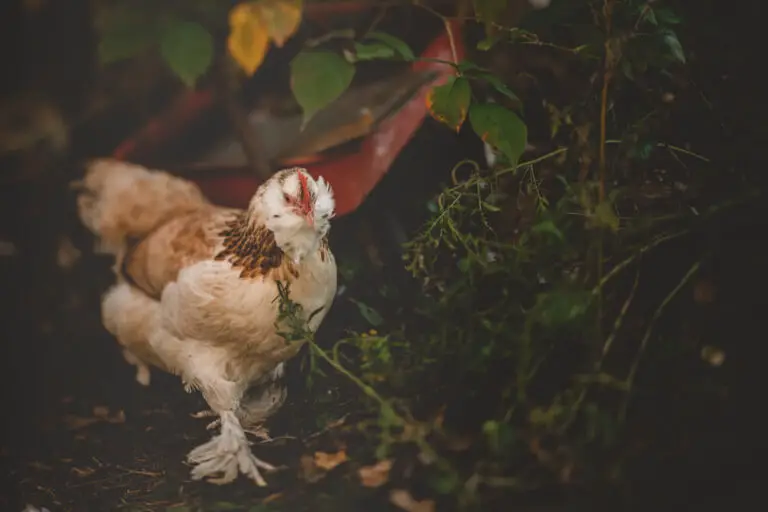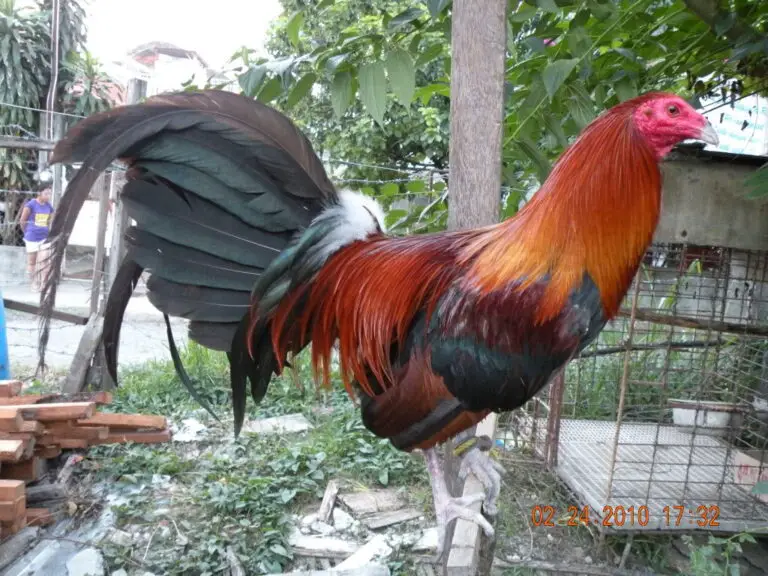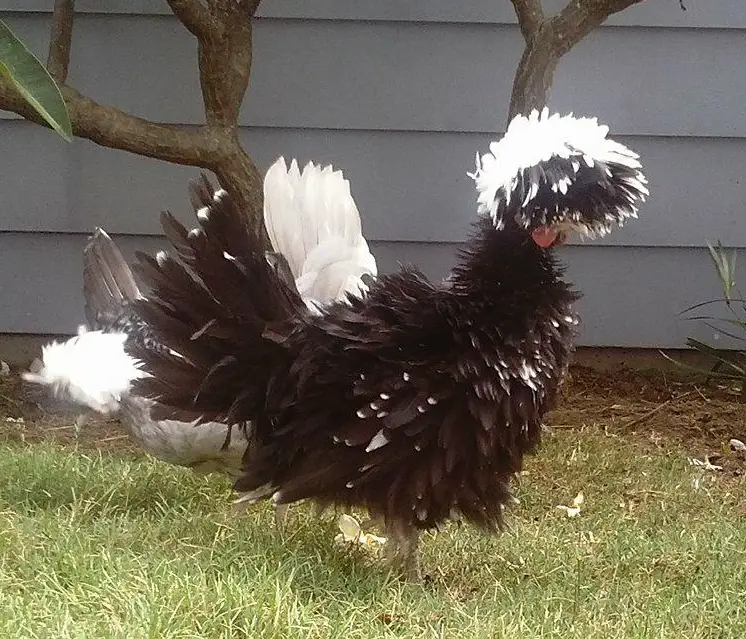Pros & Cons About Keeping Wyandotte Chickens
Monday`s at typesofchicken.com are reserved for our weekly Pros and Cons articles concerning a particular chicken breed.
As we have said many times before, we write these articles based on our own opinions and experiences as well as research. There are exceptions in every breed, so if you have had a different experience with the breed in question, feel free to share it with us.
For this Monday, we decided to do an article about the Wyandotte chicken breed.
Pros:
1. Extremely Active (a good thing)
Great foragers and extremely active chickens. Wyandotte chickens are famous for their ability to be energetic and playful.
They won’t let anything get in their way, and that can also be a pro as much as it can be a con.
2. Are Wyandotte chickens Great Layers?
The Wyandotte chicken breed is capable of providing you with a large number of eggs.
Of course, you need to have the means to provide them with the nutritious materials needed in order for a hen to lay quality eggs, and you will be more than satisfied with the outcome.
Due to their size, Wyandotte chickens are able to lay large eggs.
The size of the eggs that this breed brings to the table should not be a concern to any chicken keeper.
3. What color do Wyandotte Chickens have?
The Wyandotte chickens are available in a huge variety of colors, and that makes them special to many chicken-keeping enthusiasts.
From red to silver-laced, the colors this chicken breed is available in can make them fit in any color scheme if you are into that kind of stuff.
One of the favorite types among chicken keepers is the Golden-Laced Wyandotte chicken. They tend to be great as pets, so if you have kids, this breed will definitely be your best friend.
Also, Golden Laced Wyandotte chickens are a dual-purpose breed that can lay around 220 eggs per year and provide you with amazing chicken meat.
Golden Laced Wyandotte hens are really great mothers, they take care of their chicks a lot!
Cons:
1. Extremely Active (a bad thing)
This can be a bad thing because being extremely active means that they will also be flighty and can be bullies.
Due to their size being large, they will feel superior to other chickens and that will give them the freedom to bully them until the pecking order is formed.
Some chicken keepers say that only their Wyandotte chickens disturbed the pecking order.
2. Not Too Friendly
Although extremely beautiful with the variety of colors they are available in, the Wyandotte chickens do not want to pet.
They can get aggressive towards other animals and children, but we believe that with the proper care, even Wyandotte chickens can be taught to be friendly.
The best thing to do is get them as young as possible and give your best to train them properly.
3. Not Good In Handling Heat
The Wyandotte chickens are not very good in handling the heat so they will most likely need some special attention during the hot summer days.
It is important that they receive proper ventilation and have fresh water during the day.
Also, some shade in your run can help them have easier summers and you get more quality eggs from them.
FAQ
What type of comb do Wyandotte chickens have?
Based on our research, Wyandotte chickens have a rose comb. But you can occasionally meet some male/female Wyandotte’s with a straight comb. This is a well-known secret among Wyandotte Chicken Breeders.
What does this mean?
Well, some lines of Wyandottes are not pure for the Rose Comb gene, breeders do this on purpose, there is only one main reason some breeders do this, and its because pure Rose Comb birds(R/R) have a lower fertility rate than Heterozygous Rose Comb Males(R/r+) and there is the fact that the Rose Comb gene is one of the few completely dominant genes.
And what does this mean?
It means that you can’t tell apart a heterozygous rose comb rooster(R/r+) from a Homozygous Rose Comb rooster(R/R) so some single comb wyandottes are to be expected…
Are Wyandotte roosters aggressive?
Wyandotte roosters are a popular choice for backyard chicken keepers due to their attractive appearance and versatile characteristics.
However, the question of whether Wyandotte roosters are aggressive can lead to mixed opinions among chicken enthusiasts.
By analyzing various experiences shared by fellow chicken keepers, we can gain insight into the behavior of Wyandotte roosters and the factors that contribute to their disposition.
Aggressive Behavior and Variation: Some backyard chicken keepers have reported instances of aggression among their Wyandotte roosters.
For instance, hatchery-bred Wyandotte roosters like Stan have been known to exhibit aggressive tendencies. Stan’s propensity to flog humans and hens alike showcased his aggressive nature.
Additionally, certain Wyandotte hens can also display aggressive behavior, particularly when they are broody. The experience of an aggressive SLW (Silver Laced Wyandotte) rooster named Chloe further emphasizes the variability in behavior. Chloe’s unwavering aggression, regardless of attempted interventions, posed a challenge for the flock dynamics and well-being of the hens.
Source of Aggression: Aggression in Wyandotte roosters seems to stem from various sources, including genetics and upbringing. Reports indicate that roosters obtained from hatcheries might be more prone to aggression compared to those from breeder stock.
While some chicken keepers have experienced aggressive roosters, others have had more positive interactions with gentle and well-behaved Wyandotte roosters. This suggests that genetic factors, early socialization, and breeding practices play crucial roles in shaping a rooster’s behavior.
Managing Aggression and Selecting Roosters: Dealing with aggressive Wyandotte roosters requires careful consideration. Recognizing signs of aggression and implementing appropriate interventions are essential to ensure the well-being of both roosters and hens.
Some keepers opt to rehome aggressive roosters to environments where their behavior can be better managed, while others prioritize breeding from reputable sources to acquire well-tempered roosters.
The experiences of backyard chicken keepers underscore the importance of selective breeding and sourcing roosters from breeders known for producing amicable Wyandotte chickens.
The behavior of Wyandotte roosters can vary widely, influenced by genetics, upbringing, and individual temperament.
While some backyard chicken keepers have encountered aggressive Wyandotte roosters that posed challenges to flock dynamics, others have enjoyed the companionship of well-behaved and friendly individuals.
Understanding the sources of aggression, implementing appropriate management techniques, and selecting roosters from reputable breeders are key considerations for creating a harmonious and enjoyable backyard chicken keeping experience with Wyandotte roosters.
Can Wyandotte chickens be feather sexed?
Have you got your own Wyandotte chicks and want to know if they are male or female?
If they are like 5-10 days old, it’s so hard to know the difference. We would suggest waiting for like 4-6 weeks and looking for these indications:
MALE
- Sturdy legs
- Medium-sized pinkish comb
- Wattles starting to hang down in a curve
- Stumpy, curved tail
- Downy back with a thin line of stub feathers down the center
- Poor feathering on side of the neck, crop, and flanks
- Bare wing bows, showing wing covert quills
FEMALE
- Fine legs
- Small yellow comb
- Wattles practically non-existent
- Long pointy tail
- More advanced feathering along the center of the back
- Well advanced feathering on side of the neck, crop, and flanks
- Wing bows covered with small feathers
What is your experience with this breed?
Share them with us in the comment section below or via e-mail at support@typesofchicken.com
Share this content:
